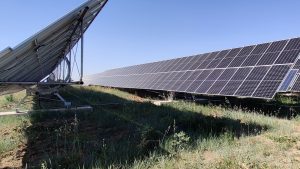Why is My Solar Cable Supplier So Expensive?
Solar power systems rely on high-quality wires and cables to generate electricity. It’s important that your solar cable supplier understands the needs of your system to ensure it meets all of the necessary standards.
Also known as PV wire, a solar cable interconnects all of the electrical components in your photovoltaic (PV) solar system. It’s typically UV and weather resistant.
Price
If you want to save money on electricity, you should use solar wire. This type of wire has a very low resistance, so it can transmit current with greater efficiency than other types of cables. It is also very flexible and can withstand harsh weather conditions. However, it is important to know the voltage of your solar system before you choose the correct size cable.
The cost of solar cables varies by manufacturer, but most companies offer discounts when you buy multiple packages. The company may also offer a free shipping option. The best way to get a discount is to ask the company for a quote before buying anything. You can usually find these quotes online.
Solar PV Cable is a cable that is designed for interconnection of various elements in photovoltaic systems, such as solar panels and combiner boxes. These cables are available in different sizes, with a variety of insulation and jacket materials, including UV-protected PVC, XLPE, and tinned copper.
Solar PV cables are used to transport DC power from solar modules to an electrical panel, circuit breaker, or charge controller. They are suitable for residential and commercial applications, and they are easy to install. They can be used in harsh environments and have a service life of over 25 years. They also have excellent temperature and oil resistance.
Quality
The quality of the wires and cables that make up a solar energy system is crucial to its performance. In fact, some installers use low-quality wires in order to save money, which can have devastating effects on the system’s functionality. This is why it’s important to understand the different options available for solar cable manufacturers and know what to look for when purchasing solar wire.
The type of solar power cable you choose is determined by your system’s specifications and the environmental conditions where it will be installed. For example, if your system will be exposed to high temperatures and moisture, a stranded conductor is better than a solid one because it can resist corrosion and retain its flexibility. Also, a copper core is more conductive than an aluminum one.
Website design By BotEap.com
Another thing to keep in mind is the insulation of a solar cable. You will want to make sure that it is rated for the voltage and current your solar panel system produces. If you use a wire that is not rated for the amount of current your system produces, it will heat up and potentially damage the wires and components. This is why it’s important to always purchase solar cables from a reputable manufacturer with a proven track record. Look for an approval certificate mark and make sure it includes the model specification, rated voltage, production date, inspection, implementation standard, factory name, and factory address.
Warranty
If you are buying a solar power system, it is important to read the warranty carefully. The warranty can cover several issues, including damage, defect, and performance loss. It may also include a clause that allows the manufacturer to replace or repair the system. Some warranties are limited in time, and others can be voided if the owner violates the terms.
In addition to examining the terms of the warranty, it is essential to understand the basics of solar energy systems. The warranty should provide you with specific instructions and guidelines for installing the equipment and using it correctly. It should also cover the safety features of the system and explain how to maintain it properly.
A good solar cable supplier will provide you with a range of cable and wire solutions for your photovoltaic installation. It can deliver cables with different voltages, based on the requirements of your project. It will also offer you a variety of insulation and jacket materials. These options make it easier for you to find the right solution for your project.
Installation
Solar wires and cables are a vital part of any PV solar system. They transfer electricity generated by solar panels to other parts of a home or commercial structure. The right wires must be used to maximize the efficiency of your solar energy system. To choose the best cable, consider factors like temperature requirements, environmental conditions, and the desired length. The right cable size will also depend on the amperage of your solar panel system. The maximum ratings for both voltage and current must be met to ensure safety.
The choice between a solid or stranded wire is also important. A stranded wire is made up of multiple metal strands, whereas a solid wire has a single core. The stranded version is generally more flexible and is better for solar applications. In addition, stranded wires can resist vibrations and other movements much better than solid wires.
Another factor to consider is the type of insulation that your cable needs. Different types of insulation protect the wire from various elements, including moisture and heat. In addition, they also prevent damage to the conductor. The right insulation is also essential to the overall performance of the cable. For example, THHN insulation is best for dry indoor conditions, while THW, THWN, and UF are ideal for wet outdoor and indoor environments.